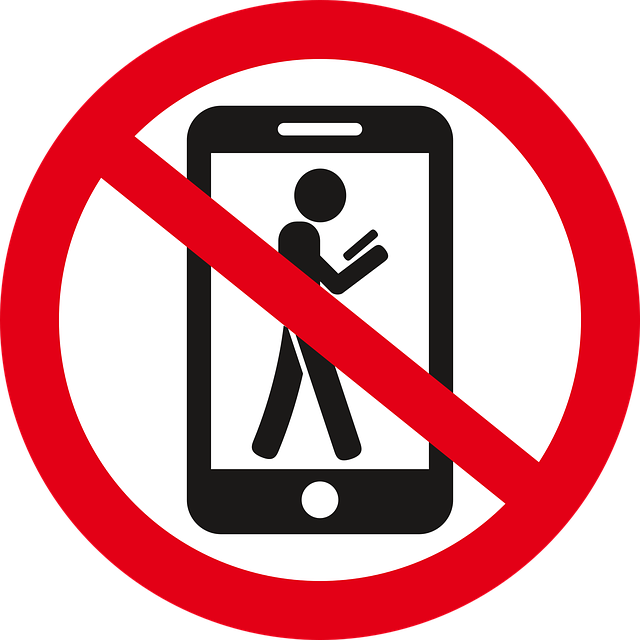Robocalls are a growing problem in North Carolina, but residents have legal recourse under the Telephone Consumer Protection Act (TCPA) and state spam call laws. A specialized Spam Call Law Firm or lawyer can guide victims through the process of suing for compensation and blocking unwanted automated calls. Documenting these calls is crucial, with potential financial compensation per violation reaching substantial amounts. In Greensboro, AI and machine learning advancements in tech raise privacy concerns, but TCPA protections stand firm against intrusive robocalls. Consulting a reputable Spam Call law firm or lawyer in NC can help residents navigate their rights and stop harassing automated messages.
“The future of robocalls is shaping up fast, particularly in Greensboro, North Carolina. This city, like many others across the state, faces an onslaught of unwanted automated calls, impacting millions of residents. Understanding robocalls and their growing influence is crucial.
This article explores the legal landscape surrounding spam call laws and consumer protection in NC, delving into emerging trends in robocall technology and offering strategic advice for consumers facing these persistent intrusions. We also dissect the role of specialized law firms navigating the complex world of TCPA cases, shedding light on options like ‘can I sue for robocalls North Carolina?'”
Understanding Robocalls and Their Impact in North Carolina
Robocalls have become a ubiquitous part of daily life in North Carolina, much like across the nation. These automated phone calls, often used for marketing purposes, can be intrusive and frustrating for recipients. In Greensboro and other parts of North Carolina, the volume of robocalls has led many to wonder about their rights and whether they can take legal action against these persistent calls. The Telephone Consumer Protection Act (TCPA) is a federal law designed to curb abusive telemarketing practices and give consumers control over unwanted phone calls. This law prohibits automated or prerecorded calls to cellular phones without the caller’s prior explicit consent, and it offers a private right of action for individuals who have suffered harm due to violators.
In North Carolina, individuals who believe they’ve been victimized by spam robocalls can indeed take legal action. A spam call law firm or spam call lawyer in NC can help navigate the complex web of TCPA regulations and determine if a lawsuit is warranted. The potential for financial compensation for each violation can be significant, making it important to understand your rights under the TCPA NC. If you’ve received unwanted robocalls, consider documenting the calls and contacting a legal professional to explore your options—you may have grounds to sue for robocalls North Carolina and put an end to this pervasive and often annoying practice.
The Legal Landscape: Spam Call Laws and Consumer Protection
In North Carolina, as in many states across the country, robocalls have become a ubiquitous and often unwanted part of daily life. The Telephone Consumer Protection Act (TCPA) is the primary federal law governing robocalls, setting restrictions on when and how businesses can contact consumers by phone. However, with evolving technologies and call strategies, navigating these laws can be complex.
If you’re wondering can I sue for robocalls North Carolina?, understanding your rights under the state’s spam call laws is crucial. A spam call law firm North Carolina or spam call lawyers North Carolina can guide you through these complexities, helping to determine if a violation has occurred and exploring legal avenues for recourse. In terms of TCPA NC, consumers have the right to seek damages for unsolicited calls, including both monetary compensation and injunctive relief to stop future violations.
Trends in Robocall Technology: What's Ahead for Greensboro?
The future of robocalls in Greensboro is marked by rapid technological advancements. Artificial intelligence (AI) and machine learning are being integrated into robocall systems, enabling more sophisticated and personalized messaging. This allows businesses to target specific demographics with tailored messages, improving conversion rates. However, it also raises concerns about privacy and consumer protection, especially as these calls can become increasingly intrusive.
Greensboro residents need to be aware of the evolving legal landscape surrounding robocalls. The Telephone Consumer Protection Act (TCPA) in North Carolina provides strong protections against unwanted spam calls. Individuals who experience frequent or harassing robocalls may have grounds to sue under this law, with potential compensation for each violation. There are reputable Spam Call law firms and lawyers in North Carolina dedicated to helping victims navigate these issues and seek justice, ensuring that the rights of North Carolina residents are upheld in the digital age.
Strategies for Consumers: How to Stop and Sue for Robocalls
If you’re receiving unwanted robocalls in Greensboro, North Carolina, know that there are legal avenues to take action. The Telephone Consumer Protection Act (TCPA) is a federal law designed to curb excessive phone marketing and protect consumers from annoying calls, including spam calls. If you’ve been harassed by automated or prerecorded messages, you may be able to sue for damages.
To stop robocalls and explore your legal options, first consider blocking the caller on your device. Next, contact a reputable Spam Call law firm North Carolina or Spam call lawyers North Carolina. These professionals specialize in TCPA cases and can guide you through the process of filing a complaint with the Federal Trade Commission (FTC) or taking legal action against the offending company. Remember, under NC laws, you could be entitled to up to $500 for each violation of the TCPA, making it worthwhile to consult a lawyer for TCPA NC.
The Role of Law Firms Specializing in TCPA Cases
In the evolving landscape of robocalls, especially in Greensboro and throughout North Carolina, individuals who experience unwanted or spam calls now have legal recourse. The Telephone Consumer Protection Act (TCPA) is a robust federal law designed to prevent businesses from engaging in excessive or unauthorized automated calling, including robocalls. This legislation empowers citizens to take action if they’ve been affected by these nuisance calls. If you’re wondering, “Can I sue for robocalls North Carolina?” the answer is yes. Law firms specializing in TCPA cases have emerged as crucial navigators in this legal territory, offering expertise in representing clients who want to hold violators accountable and seek compensation.
These law firms, often referred to as Spam call lawyers or Spam call law firms NC, are well-versed in the intricacies of the TCPA and its implementation. They guide their clients through the process of determining if a robocall was made without proper consent, which is a key factor in deciding whether legal action is warranted. Their efforts don’t just stop at helping individuals; they also contribute to shaping the future of robocalls by deterring businesses from engaging in such practices. With each successful case, these law firms ensure that the rights of North Carolina residents are protected and that spam calls are reduced, fostering a safer and less intrusive communications environment.






